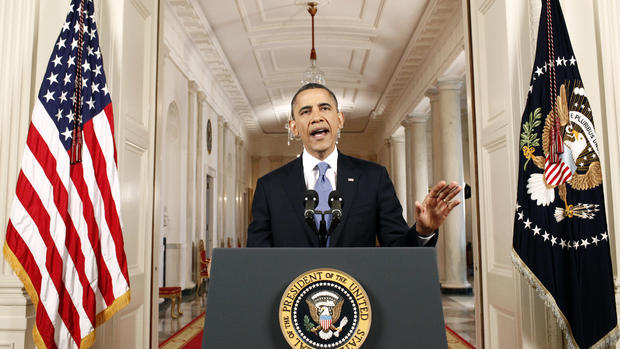Chief Justice John Roberts rewrites his legacy
(CBS News) President Obama and Chief Justice John Roberts have a somewhat rocky history.
In 2005, then-Senator Obama voted against Roberts' confirmation. Then, at the Obama inauguration in 2009, Roberts misspoke the oath and had to swear-in the president a second time.
Roberts was nominated to the court by President George W. Bush and has been a solid conservative. But in Thursday's decision upholding Mr. Obama's signature health care law, Roberts cast a decisive -- and surprising -- vote with the majority. Almost every conservative scholar in the country is now asking: What happened to the Chief Justice?
"Oh, I think everybody's surprised," said Georgetown Law professor Randy Barnett, who was among the first to argue the insurance mandate was unconstitutional.
Barnett said he's surprised because the Chief Justice struck down every administration argument defending the Affordable Care Act, but went out of his way to approve the law under Congress' power to tax.
"As to why he decided to uphold the act under the tax power, to rewrite the law as a tax, that's something that only he really knows," Barnett said.
Supreme Court upholds health care mandateJohn Roberts' health care vote scrutinized
Read the Supreme Court's full decision (PDF)
Until this very morning Chief Justice Roberts was a reliable conservative vote, especially on social issues that split the Court 5-4. Roberts wrote the 5-4 opinion to end school integration based solely on race. He was part of the 5-4 majority that upheld the ban on late-term abortions, and the 5-4 majority allowing unlimited corporate spending in campaigns.
So what happened? Tom Goldstein, founder of SCOTUSblog -- a respected website on the High Court -- says Roberts followed the law, but knew he was making history.
"This is item No. 1 (of Roberts' legacy.) This is his signature statement that 'I'm not a partisan, I'm here to provide a limited backstop against excesses by the Congress, and I don't see it here,'" Goldstein said.
To conservatives, this was a signature statement, just not the right one.
"If it turns out that Chief Justice Roberts did buckle under the intense political pressure, that will not be good for his legacy as a justice," Barnett said.
There's already no question this changes the Chief Justice's legacy. Yesterday, he was widely seen as partisan. Today, in the most dramatic case of his career, he broke the mold.
In his opinion, the Chief Justice made a point of not endorsing the wisdom of the health care law. He said the decision was based on a general reticence to invalidate the acts of the nation's elected leaders.
In his opinion, Roberts wrote: "It is not our job to protect the people from the consequences of their political choices."
